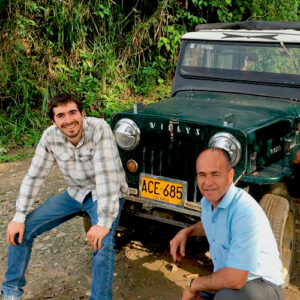¿What is Mítico?
MÍTICO is a tribute to our mythical Colombian cycling glories, our peasants, our coffee and our mountains, which have been icons and ambassadors of our culture around the world.
MÍTICO is also the perfect way to express and offer the world the union of our two passions, cycling and coffee.
¿How is Mítico Born?
To become a premium quality and differentiated coffee, Mítico has been grown and developed by small, traditional and dedicated producers along with expert developers of specialty coffee. Throughout the process, they put all their love and experience so that Mítico expresses its full potential and sharpens your senses.
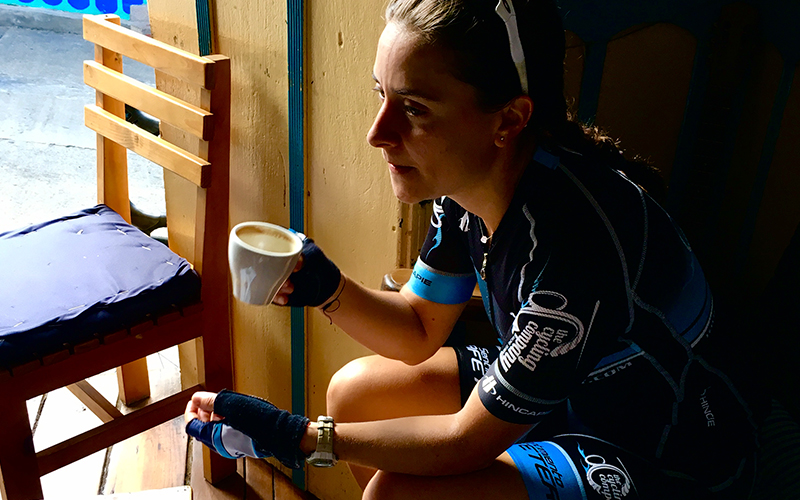
The Farm Selection
To select a perfect farm, we not only base ourselves on the conditions of the farm, but on the history behind that family and the historical relationship that exists with the producers. Once identified, the first thing we do is a complete visit. We take into account the temperature and location conditions, what environmental supply exists, we evaluate the soils, current plantations, the varietals that the crop has and the management that is traditionally applied to it. Subsequently, a sample is taken and evaluated, giving us a starting point.
Normally, we start from normal commercial rates and over time, we begin to evaluate and understand which are the variables that we must develop in order to improve.
Once the cup has been organoleptically and physically evaluated, we begin to take parameters and manage the variables that we can modify, such as shading or improving soil conditions through conservation. Once we see that there is potential in that cup, which shows something different, we decide to start working with the farm, as long as the family is willing to change their way of thinking, to get advice, to evolve and to raise their quality standards.
There are hundreds of factors that affect the development of a coffee, but for it to be good, regular or bad, we have to begin to understand in each farm what are those variables that we must modify.
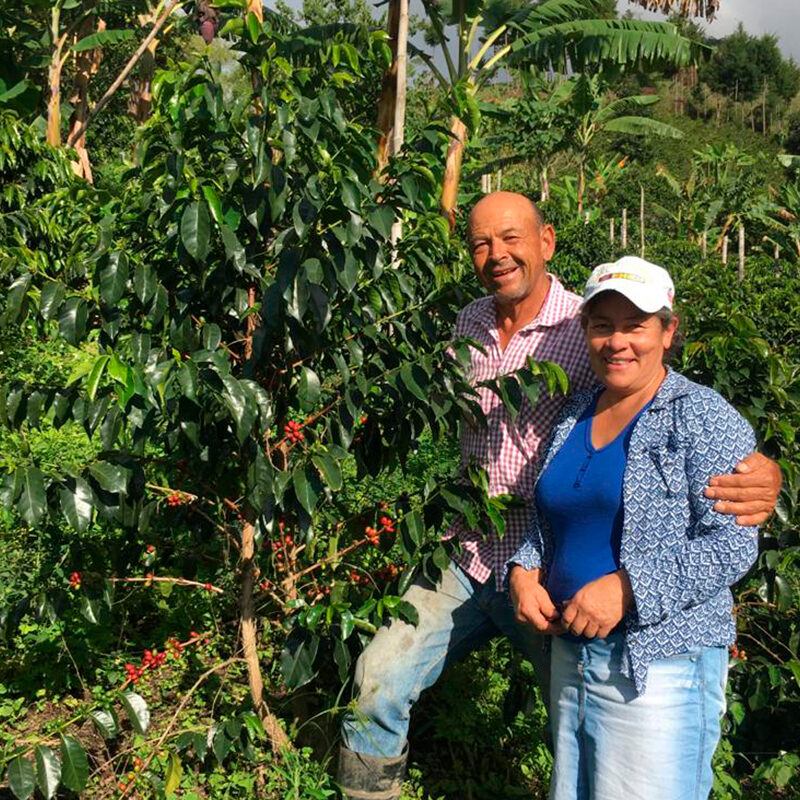
Sowing
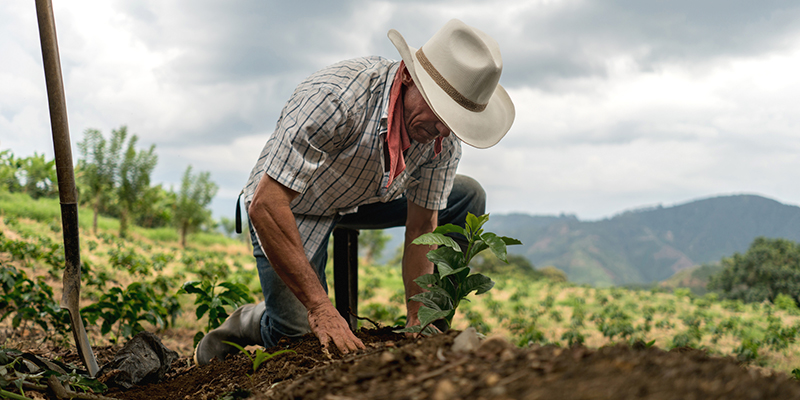
In Colombia sowing is still very traditional, but we suggest and support some practices that are aimed at conservation, for example, in areas with high slopes where inadequate land preparation means a very large loss of soil and that means losing potential and the health of the farm.
Likewise, through the proper management of covers such as weeds and shade trees, we try to reduce costs in weed management and at the same time reduce the erosive rates of the soils.
Nutrition

The nutrition of the crop is carried out independently with the requirements of each farm, for example, in some farms we totally avoid agrochemicals, nourishing only with organic, prepared and bio-fermented sources and in others, after understanding what the deficit is, we use synthetic fertilizers. Regarding pest control, we promote a totally preventive management that allows us to avoid reaching a final control.
Harvest
Before harvesting, we make special measurements to understand which is the optimum point of maturity for each farm, we classify grain by grain and harvest from the hand of the collectors only the grains that give the required point of maturity.
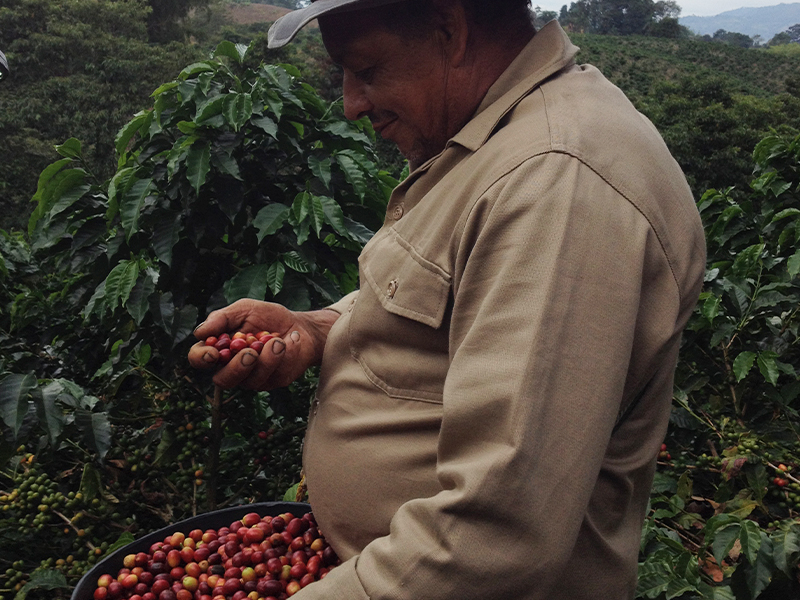
Process and Development
Understanding how each farm works, we determine what type of process will be carried out, from aerobic or anaerobic fermentations, submerged, extended or carbonic maceration, honey to direct or pre-fermented natural ones. Each farm is different and requires a lot of time and development to understand the coffee.
Subsequently, drying is usually carried out very slowly using different systems such as drying patios, elbas, parabolic, drying cars, without sun or mechanical systems, always trying to ensure that the activity in each grain has the desired behavior.
The dried coffee is taken to the laboratory where it´s threshed and classified industrially through air machines and sieves, photographs grain by grain and finally a pass by hand to guarantee that there is no serious defect in the coffee.
Subsequently, a physical quality analysis is carried out where we remove everything that does not work and leave only what works for roasting.
In the roasting we develop a unique curve based on the experience of the development of that farm, considering that each new process during the benefit implies a new development of the roasting curve, even if the protocol has not been modified, the grain will always be different given the variations that occur in each season.
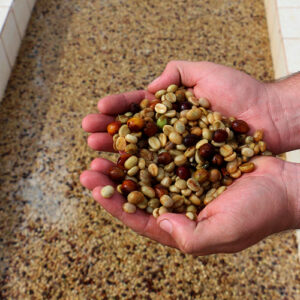
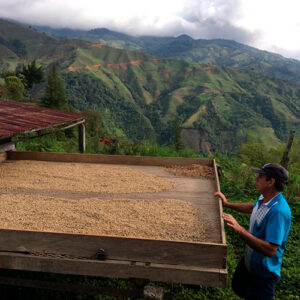
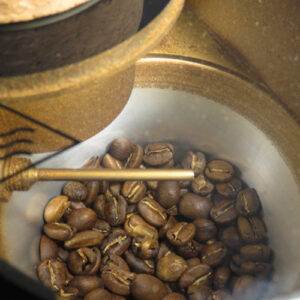
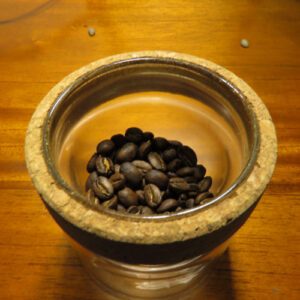
Cupping
Finally, an organoleptic evaluation is made of everything carried out on the farm and during the process where the final result is observed. We evaluate several parameters including the body, acidity, sweetness of the coffee, retro taste (taste in the mouth), uniformity and that there is no defect, no matter how slight.
By testing all the development, we guarantee that the standards we seek are met and thus turn something that is totally subjective into something as objective as possible. For this we use Q Grader tasters who guarantee that there is a calibration in the tasting, in such a way that it produces the same sensations anywhere in the world where it is repeated.
Once this is finished, we develop the roasting curves. We grind the coffee, feel fragrance and aroma, and the coffee is analyzed as it cools. It is usual to wait until it is totally cold as some of our customers use our coffees for Coldbrew and thus we can identify them.
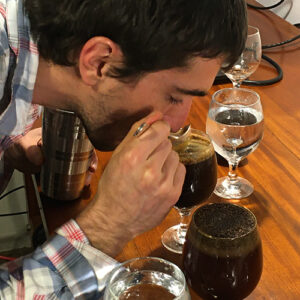
¿Why roast in origin?
We believe that no one knows a coffee better than the producer who cares it and the people who developed it from the beginning to the final consumer. Based on all the experience of the process done at the farm plus all the roasting developments, we think that we have more tools to roast it than those they have at the destination. Another argument is that a processed product is being delivered in the conditions in which it was evaluated, which guarantees that the final consumer enjoys the true potential of that coffee.
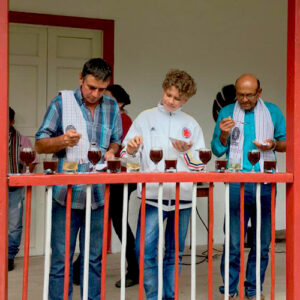
Sustainability
Socially, our producers receive strict support throughout the process, where they and their families learn to develop and value their coffees. Many of our producing families, in the middle of the process, have organized themselves to form small family industries where each one, Mom, Dad, children and grandparents has an important role that motivates them to grow and to continue improving qualities.
Economically, our producers receive between 3 and 5 times the commercial value of coffee, which has resulted in a better quality and projection of life for them and their families.
Regarding the environment, most of our coffees are developed under strict conservation programs using mulches so that the soils are never uncovered, elimination almost entirely of synthetic fertilizers replaced in turn by composting and elimination of the use of pesticides.
